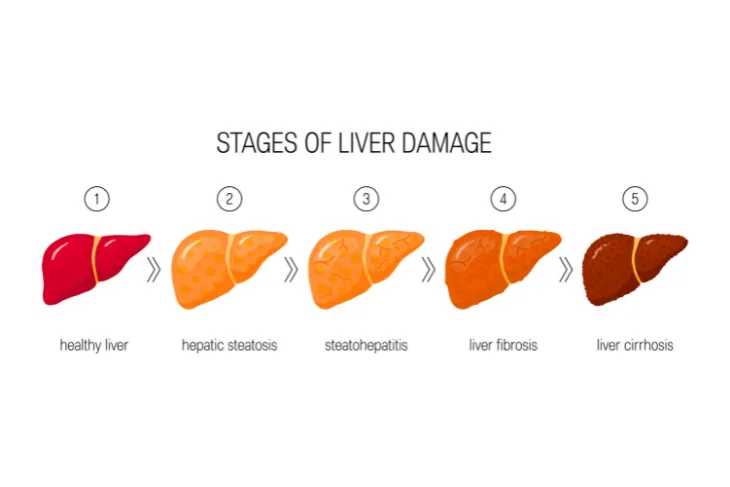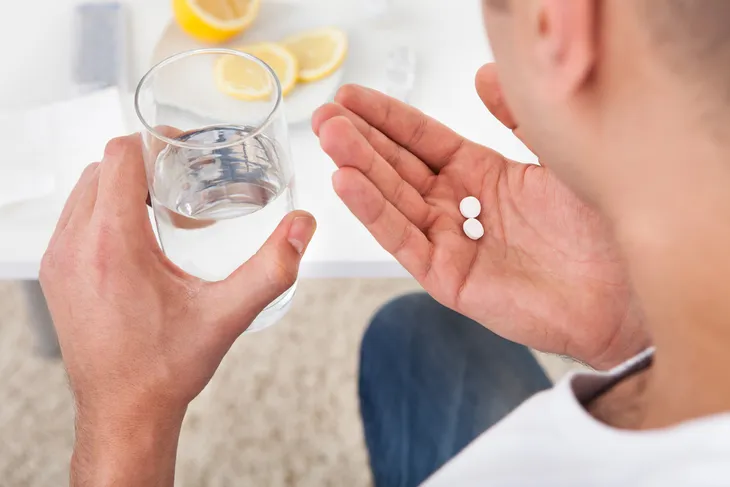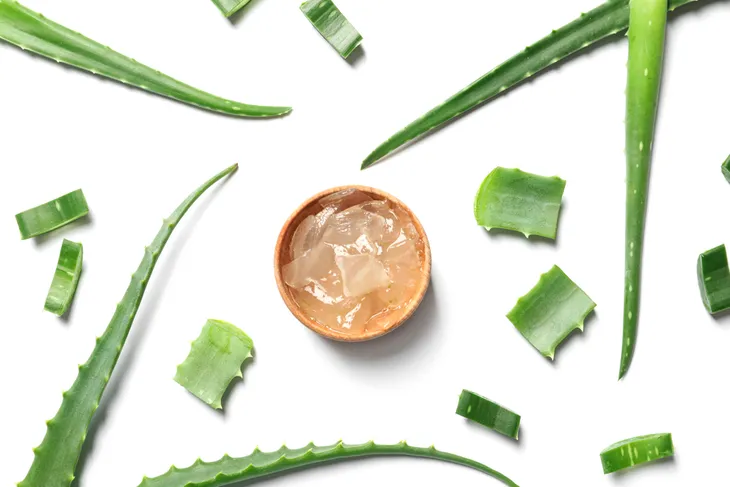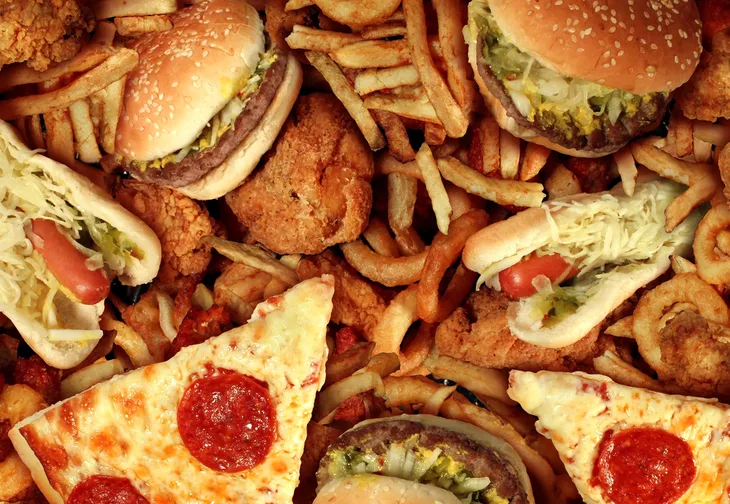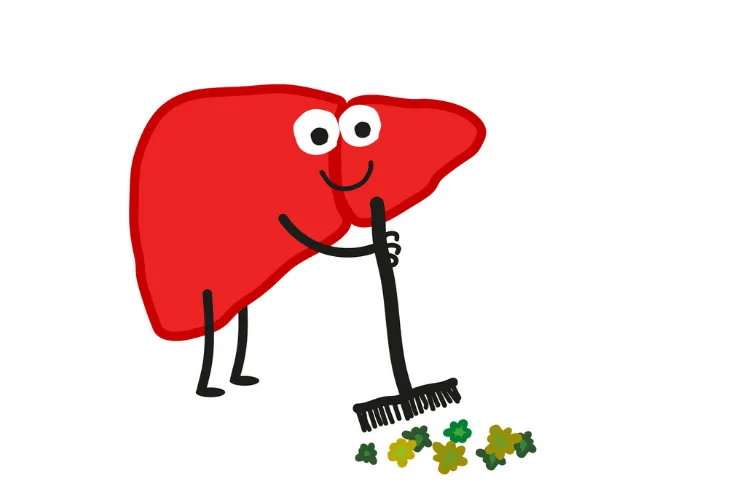According to the Liver Foundation around 100-million people are estimated to have non-alcoholic fatty liver disease in the U.S. This disease can lead to serious complications such as cirrhosis or liver cancer, if it’s not dealt with right away. The good news is your liver is a special organ that can actually repair itself.
Recognizing the symptoms and altering your habits can help reverse the effects of fatty liver. In the early stages, all it might take is simply being more cautious of your lifestyle choices. Here’s a rundown on liver health and what you can do to help repair this vital organ.
What Damages the Liver?
The choices you make in your daily lifestyle directly impact your liver health and the rest of your body. You might not even realize that your regular consumption of alcohol or your high-fat diet is putting you at risk.
Hopkins Medicine says certain habits are directly linked to liver problems. The following are some factors that put you at risk for liver disease:
- Exposure to toxins
- Too much alcohol
- Harmful supplements
- Obesity, diabetes, or high cholesterol
- History of liver disease
Signs and Symptoms of Liver Damage
Not everyone will experience obvious symptoms related to liver disease. But over time, you may begin to experience certain signs indicating the need for a trip to the doctor. Recognizing the symptoms can ensure you start implementing positive changes into your lifestyle.
According to Mayo Clinic, symptoms of liver disease may include:
- Jaundice
- Abdominal pain and swelling
- Swollen legs and ankles
- Itchy skin
- Dark-colored urine
- Pale stool
- Chronic fatigue
- Nausea or vomiting
- Loss of appetite
- Easy bruising
Abstain From Alcohol
Alcoholic fatty liver disease is no joke. Even just a few days of drinking can lead to a build up of fats in the liver, making it the gateway towards more serious complications such as alcoholic hepatitis and cirrhosis.
Luckily, you can avoid hurting your liver health further by not drinking alcohol. After two weeks of abstinence, the National Health Service says your liver should return to normal, but don’t jump back into drinking large quantities of alcohol. Instead, drink in moderation and avoid binge drinking.
Be Careful With Medication
When you feel a headache or some type of pain coming on, you may choose to take acetaminophen (Tylenol) or ibuprofen (Advil) to feel better. But when you’re trying to get your liver healthy again, this could deter that from happening.
Medications can induce liver injury. That’s why you should only be taking medication when it’s absolutely necessary or recommended by your doctor. By doing so, you will ensure your liver doesn’t continue regressing due to the ingredients found in common medications.
Medications That Are Bad For Your Liver
Many different medications have been linked to liver problems. If you must take something, make sure to follow the directions on the packaging and don’t take too much.
Healthline lists the following medications that could damage your liver:
- Tylenol
- Advil
- Motrin
- Aleve
- Antibiotics
- Statins
- Phenytoin
- Azathioprine
Avoid Herbal Supplements
To avoid taking extra medications, some people may think herbal supplements are a safer alternative. This just isn’t the case and could actually pose more danger to your liver.
In fact, a study published in the U.S. National Library of Medicine says that herbal and dietary supplement-induced liver injury accounts for 20-percent of cases of hepatotoxicity in the U.S.
Ingredients to Look Out for
WebMD says to watch out for supplements linked to toxic liver disease and be mindful of the following ingredients:
- Aloe vera
- Black cohosh
- Cascara
- Chaparral
- Comfrey
- Ephedra
- Kava
Maintain a Healthy Weight
Another factor that can prevent you from fully repairing your liver is your weight. That’s because if there is excess fat built up in the liver, you can experience liver damage and inflammation. Healthline says this affects your liver’s ability to function, which is why maintaining a healthy weight is something to consider.
Talk to your doctor to find out what weight is ideal for you. To achieve or maintain a healthy weight, consume a balanced diet and get control of your portions. Getting daily exercise, even just a walk around the neighborhood can also contribute to fat loss.
Eat Liver-Friendly Foods
The key to living a healthy life often starts with your diet. Consuming a diverse selection of foods rich in fiber and low in fat will do your liver a whole lot of good.
Healthline says that too much fat damages the liver, which prevents it from working properly. An ideal diet for those healing their liver will consist of lots of fruit and veggies, foods high in fiber and whole grains, little sugar and fat, and no alcohol.
Examples of Liver-Friendly Foods
There are loads of healthy foods and drinks to start eating every day. Some examples of liver-friendly foods and drinks include:
- Coffee
- Fish with omega-3 fatty acids
- Oatmeal
- Greens such as spinach, brussels sprouts, and kale
- Avocado
- Low-fat dairy products
- Olive oil
- Garlic
Avoid Certain Foods
While you make an effort to include liver-friendly foods into your diet, make sure to avoid ones that can negatively impact your health.
This means cutting down on fatty and fried foods often found in restaurants or fast food chains. Also make sure to limit your salt, fat, and sugar intake. When it comes to meat and seafood, never eat anything raw or undercooked.
Why the Liver Is Important
Knowing just how much your liver is responsible for will make you want to do everything you can to keep it healthy. The Canadian Liver Foundation says the liver performs over 500 vital functions. It’s an organ that works constantly by processing what you eat, drink, breathe in, or even rub on your skin.
Additionally, your liver is responsible for things such as:
- Cleansing your blood
- Regulating your supply of body fuel
- Regulating the balance of hormones and cholesterol
- Producing bile
- Manufacturing essential body proteins
Repair Your Liver Before Complications Occur
The liver is a resilient organ that has the ability to repair itself, but it can’t do that on its own. You must implement healthy habits into your routine and be wary of actions that can cause more damage in the short and long term.
Drinking too much alcohol over the years can lower your liver’s ability to develop new cells and regenerate. That being said, avoid alcohol at all costs when you’re trying to repair the liver. Be careful with your medications and try to avoid taking any herbal supplements. Finally, indulge in a clean, fiber-rich diet and your liver can start its road to recovery.

